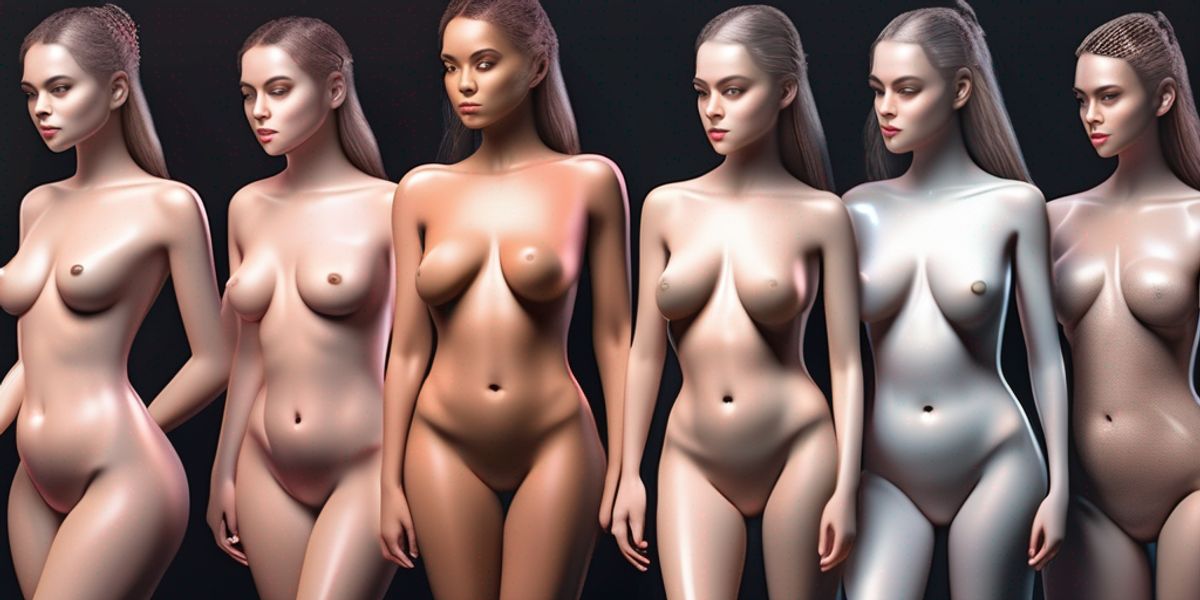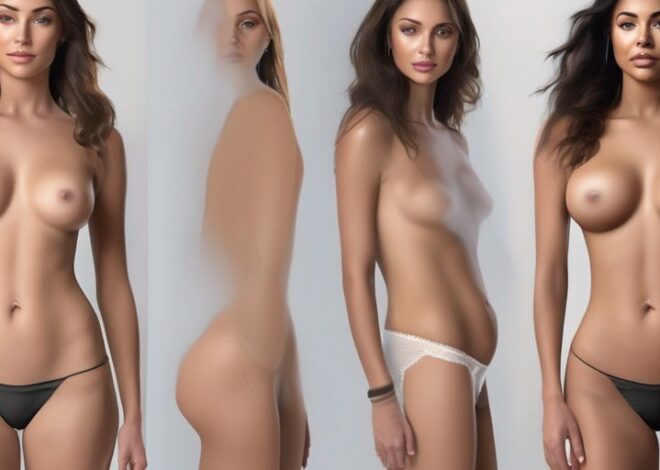
The Rise of Undress AI Nudes: Ethical Implications and Privacy Concerns
The emergence of Undress AI technology, which uses artificial intelligence to generate nude images of individuals without their consent, has sparked a significant ethical debate and raised numerous privacy concerns. This technology, exemplified by platforms like Nudify.Online, leverages advanced AI algorithms to alter images, leading to potential misuse and significant societal implications. This article delves into the multifaceted issues surrounding Undress AI, including the legal, ethical, and social dimensions, as well as the technological measures that can be taken to mitigate its risks.
Key Takeaways
- Undress AI technology, such as Nudify.Online, uses sophisticated algorithms to digitally remove clothing from images, posing serious privacy threats.
- There is a lack of comprehensive legal frameworks specifically addressing the use of Undress AI, leading to significant challenges in governance and enforcement.
- The ethical implications of Undress AI are profound, raising questions about consent, the morality of AI applications, and the balance between innovation and ethical responsibility.
- Victims of Undress AI misuse can suffer severe emotional and psychological consequences, highlighting the need for robust protective measures.
- Future developments in AI should focus on ethical design and implementation, ensuring that advancements in technology do not come at the cost of personal privacy and integrity.
Understanding Undress AI Technology

How Undress AI Works
Undress AI technology manipulates images to digitally remove clothing from the subjects in the photos. This process involves complex algorithms that analyze the contours and shadows of the clothing to predict what the person might look like without them. The technology is often used without the consent of the person in the image, raising significant ethical and privacy concerns.
Technological Advancements in AI
Recent years have seen rapid advancements in AI technology, particularly in image processing and machine learning. These improvements have made it possible for applications like Nudify.Online to create more realistic and convincing images, pushing the boundaries of what AI can achieve in manipulating visual content.
Nudify.Online: A Case Study
Nudify.Online represents a significant case study in the application of undress AI technology. > This platform uses the most advanced clothes-removing AI technology of 2024, showcasing how far AI capabilities have come in terms of image manipulation. The ease of access to such technologies poses a stark reminder of the urgent need for robust legal and ethical frameworks to govern their use.
Legal Framework Surrounding Undress AI

Current Laws and Regulations
Most countries have yet to pass laws that directly address the creation or distribution of AI-generated nude images. However, existing privacy and anti-harassment laws may cover some aspects of undress AI misuse. The lack of specific legislation leaves a significant legal grey area.
International Perspectives on AI and Privacy
Different countries have varying degrees of privacy protections, which affects how undress AI technologies are regulated globally. For instance, the EU’s GDPR provides stringent guidelines that could potentially cover undress AI, while other regions may have less comprehensive protections.
Legal Loopholes and Challenges
The rapid advancement of AI technologies often outpaces the ability of legal systems to adapt. This creates loopholes that can be exploited by those using undress AI unethically. A concerted effort is needed to close these gaps and ensure comprehensive protection against misuse.
Ethical Dilemmas Posed by Undress AI

Consent and AI
The core ethical issue with Undress AI technologies like Nudify.Online revolves around consent. The ability of AI to generate nude images of individuals without their explicit permission raises significant concerns about consent violation. This technology can be used without the knowledge or approval of the person in the image, leading to potential misuse and exploitation.
The Morality of AI in Personal Privacy
Undress AI challenges the boundaries of personal privacy. The technology’s capability to expose someone’s body digitally without consent not only breaches privacy but also questions the moral grounds of such actions. It’s crucial to evaluate whether the benefits of such technologies outweigh the severe privacy invasions they entail.
Balancing Innovation with Ethical Standards
Innovation in AI should not come at the cost of ethical standards. Establishing guidelines that ensure AI developments like Undress AI are aligned with ethical practices is essential. The industry must strive to balance technological advancement with the protection of individual rights and dignity.
Privacy Concerns with AI-Generated Nudes

Risks to Personal Privacy
The proliferation of AI technologies like Nudify.Online, which can generate nude images from clothed photos, poses significant risks to personal privacy. Individuals may find their images misused without their consent, leading to potential harm and distress.
Impact on Victims of AI Misuse
Victims of AI-generated nudes often experience severe emotional and psychological consequences. The unauthorized use of personal images can lead to social stigma, anxiety, and even professional repercussions.
Preventative Measures and Solutions
To combat the misuse of AI in generating non-consensual nudes, several measures can be implemented:
- Regulation and oversight of AI technologies
- Development of AI detection tools
- Public awareness campaigns about the risks and legal repercussions of AI misuse
Social Implications of Undress AI

Cultural Impact of AI in Society
The integration of undress AI into society has sparked a broad cultural debate about the boundaries of technology and personal privacy. The curiosity and novelty of an undress AI tool could expose individuals to new forms of digital interaction that may not align with existing cultural norms and values.
AI and Its Influence on Social Norms
Undress AI technologies challenge traditional notions of privacy and consent, reshaping social norms around nudity and personal boundaries. This technology’s ability to ‘undress’ anyone in any photo has raised significant concerns about consent and the ethical use of AI.
The Role of Media in Shaping Perception
Media coverage of undress AI technologies plays a crucial role in shaping public perception. By highlighting both the potential abuses and the technological marvels, media can influence the acceptance or rejection of these technologies in everyday life.
Technological Countermeasures and Security

Advancements in Protective AI Technologies
In response to the growing concerns over undress AI, significant strides have been made in developing protective AI technologies. These advancements focus on detecting and mitigating unauthorized AI activities, ensuring digital consent mechanisms are robust and tamper-proof. Key technologies include real-time image analysis and AI behavior monitoring systems.
Role of Cybersecurity
Cybersecurity plays a crucial role in safeguarding against the misuse of AI technologies. Effective strategies involve both preventive measures and rapid response protocols. Organizations must prioritize continuous updates and training in cybersecurity to stay ahead of potential AI-driven threats.
Building Resilience Against AI Threats
To build resilience against AI threats, it is essential to establish a multi-layered security approach. This includes not only technological solutions but also legal and ethical frameworks to guide the use of AI. Collaboration between technology developers, policymakers, and cybersecurity experts is vital to create a comprehensive defense system.
Future Prospects of Undress AI

Potential Positive Uses of Undress AI
While the technology behind Undress AI has sparked significant controversy, it also holds potential for positive applications. For instance, in the fashion industry, it could revolutionize virtual try-ons, allowing consumers to see themselves in clothes without physically trying them on. This could enhance online shopping experiences and reduce return rates.
Predictions for AI Development
The trajectory of AI technology suggests that Undress AI will become more sophisticated and widespread. Predictive analytics could lead to more personalized and secure applications, potentially transforming sectors beyond just personal entertainment or novelty.
Ethical AI Design and Implementation
The development of Undress AI technology must prioritize ethical considerations to prevent misuse. Establishing robust ethical guidelines and incorporating transparency in AI operations can build trust and ensure the technology is used responsibly. Efforts should focus on enhancing security measures and promoting the benefits of AI while safeguarding individual privacy.
Conclusion
The emergence of AI technologies like Nudify.Online, which can digitally undress images, presents profound ethical and privacy challenges. As we advance technologically, it is crucial to balance innovation with the rights and dignity of individuals. The potential misuse of such technologies can lead to severe personal and societal consequences, underscoring the need for stringent regulations and ethical guidelines. It is imperative for developers, lawmakers, and society to collaborate in creating a safe digital environment that respects and protects personal privacy and upholds moral standards.
Frequently Asked Questions
What is Undress AI technology?
Undress AI technology refers to artificial intelligence systems that can digitally remove clothing from images of individuals, often without their consent, creating nude images. This technology uses advanced algorithms to analyze and manipulate photos to achieve realistic results.
How does Nudify.Online work?
Nudify.Online is a web-application that uses advanced AI technology to digitally remove clothes from images. It employs the latest AI techniques of 2024 to analyze the images uploaded by users and generate realistic nude versions of the subjects in the photos.
What are the legal implications of using Undress AI technology?
The use of Undress AI technology raises significant legal issues, including violations of privacy, potential defamation, and the unauthorized use of one’s image. Different countries have varying laws regarding digital content manipulation, and many are still catching up with the rapid advancements in AI technology.
What ethical concerns are associated with Undress AI?
Ethical concerns include the lack of consent from individuals whose images are manipulated, the potential for harm and embarrassment to the subjects, and the broader implications for societal norms regarding privacy and respect for individuals. The technology challenges the moral boundaries of how AI should be used in relation to personal privacy.
What can be done to prevent the misuse of AI-generated nudes?
Preventative measures can include stricter laws and regulations, advanced technological solutions like digital watermarking and AI detection tools, public awareness campaigns, and ethical guidelines for AI development and use. Ensuring that there are robust legal and technical frameworks in place is crucial to combat misuse.
What future developments can be expected in the field of Undress AI?
Future developments might include more sophisticated AI algorithms that could further blur the lines between real and AI-generated content, potential positive uses in fields like fashion and healthcare, and ongoing discussions about ethical AI design. The technology will likely continue to evolve, prompting ongoing ethical, legal, and social debates.



